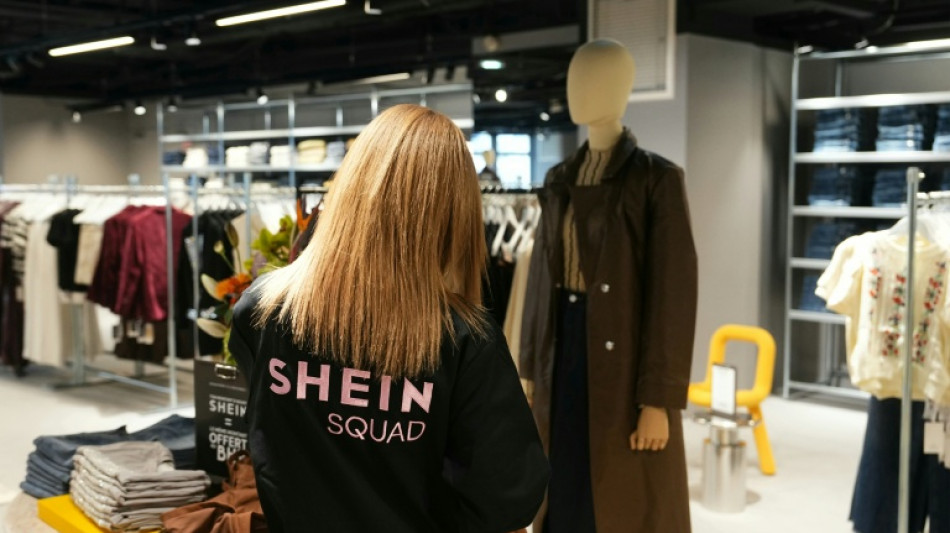

Greenpeace says clothes sold by Shein break EU chemicals rules
Clothing items sold by Asian e-commerce giant Shein contain dangerous chemicals at levels well in excess of EU rules, Greenpeace charged in a report published on Thursday.
A spokesman for Shein told AFP that "as a precaution we will withdraw the articles that we can identify from our marketplace worldwide".
Greenpeace Germany said 18 clothing items out of 56 that it sent for testing "contained dangerous chemicals that exceed the limits in the EU's REACH chemical regulation, sometimes severely".
Among the products was a children's mermaid costume which exceeded the REACH limits on formaldehyde, the group said.
It also said adult jackets had high amounts of phthalates, chemicals used to make plastics more flexible which have been linked to numerous health problems.
Greenpeace said in a statement that the substances "especially affected workers and the environment in the countries of production".
"However consumers are also exposed to the chemicals through skin contact, sweat or breathing in fibres," the campaign group said.
When the garments are "washed or disposed of, the substances enter rivers, soils and the food chain".
The spokesman for Shein said the company "takes product safety very seriously and is committed to offering customers safe products that meet the relevant rules".
"As Greenpeace did not provide the test results in advance, we have not yet been able to evaluate them," he said, adding that the company was investigating Greenpeace's claims.
Shein has faced various controversies over its business model and products.
Earlier this month France moved to suspend Shein's online platform following outrage over its sale of childlike sex dolls.
European retailers say they face unfair competition from overseas platforms, such as Shein, AliExpress and Temu, which they claim often do not comply with the EU's stringent rules on products.
The European Commission has said it will propose a draft law next year to tackle these issues.
Last week EU states also agreed to scrap a bloc-wide duty exemption on low-value orders from the likes of Shein to help tackle a flood of cheap imports into the bloc.
In October a German consumer organisation said its tests of a selection of products sold by Temu and Shein found that most of them did not conform to EU safety standards, with some of them potentially "poisonous" and others posing fire risks.
At the time Shein said the products in question had been withdrawn.
M.Kuhn--BVZ




